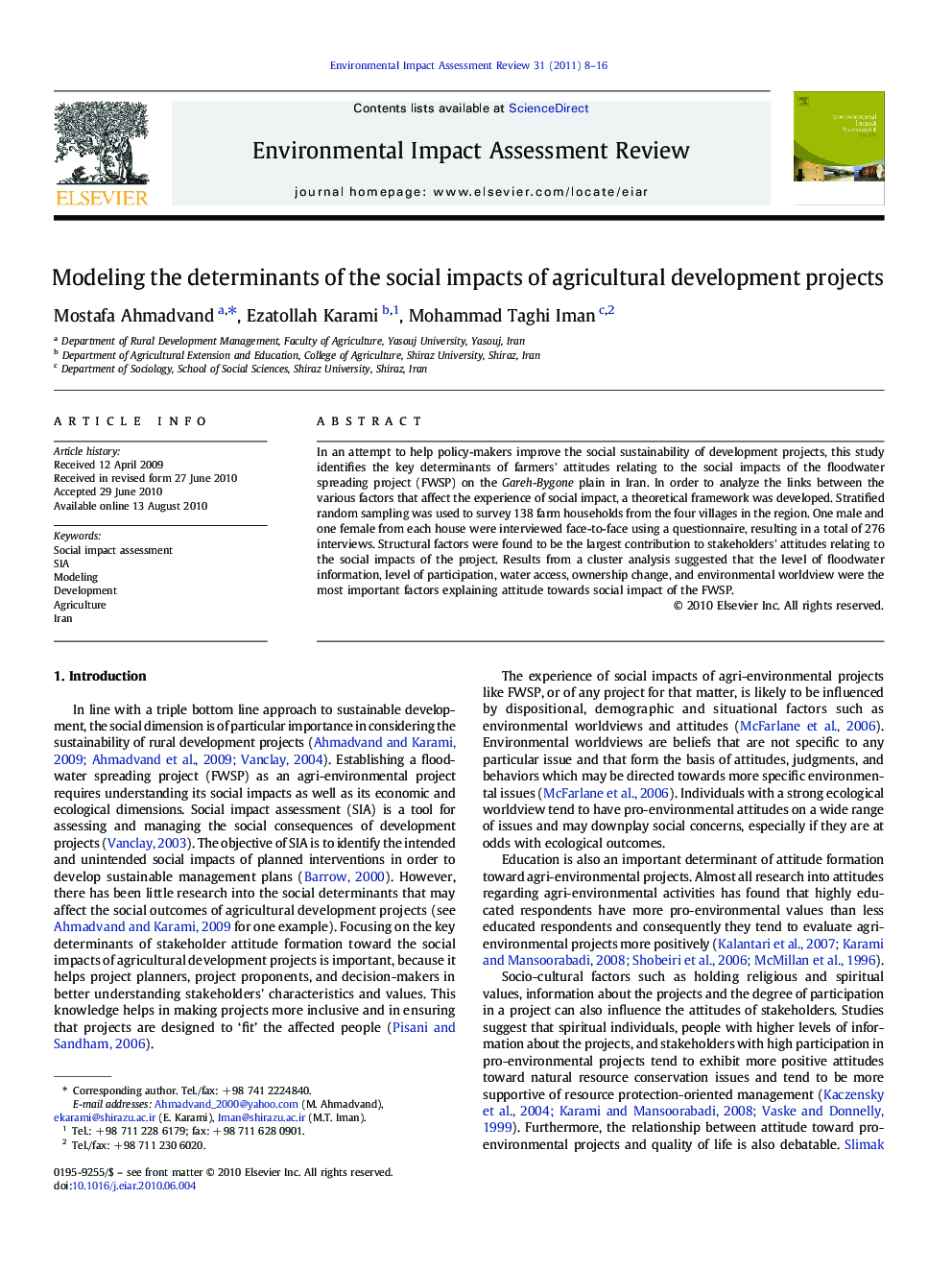| Article ID | Journal | Published Year | Pages | File Type |
|---|---|---|---|---|
| 1052977 | Environmental Impact Assessment Review | 2011 | 9 Pages |
In an attempt to help policy-makers improve the social sustainability of development projects, this study identifies the key determinants of farmers' attitudes relating to the social impacts of the floodwater spreading project (FWSP) on the Gareh-Bygone plain in Iran. In order to analyze the links between the various factors that affect the experience of social impact, a theoretical framework was developed. Stratified random sampling was used to survey 138 farm households from the four villages in the region. One male and one female from each house were interviewed face-to-face using a questionnaire, resulting in a total of 276 interviews. Structural factors were found to be the largest contribution to stakeholders' attitudes relating to the social impacts of the project. Results from a cluster analysis suggested that the level of floodwater information, level of participation, water access, ownership change, and environmental worldview were the most important factors explaining attitude towards social impact of the FWSP.
